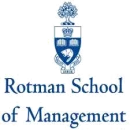Podcast special from Unimy, Unimy and Beyond, and Prepadivser. How and why should you use culture to find your best MBA?
Get a free consultation

International MBA students
Student satisfaction rate
Schools accredited by AACSB, AMBA or EQUIS
Average annual salary
Your guide to studying in Canada
Renowned for its high-quality education system, top business schools in Canada offer diverse programs recognized globally for their excellence. Students benefit from state-of-the-art facilities, such as labs and libraries, and have access to innovative research opportunities that reflect Canada’s leadership in fields like technology, healthcare, and environmental science. As the second-largest country in the world by land area, it captivates with stunning natural landscapes, such as the Rocky Mountains and Niagara Falls. Vibrant cities like Toronto, Montreal, and Vancouver offer a lifestyle that balances both adventure and tranquility.
Cultural Specifics of Canada
In Canada, where Anglophone and Francophone populations live together harmoniously, people are known for their politeness and respect for others, often going out of their way to say “please” and “thank you”. Communication is generally direct but always considerate, with a strong emphasis on listening and inclusivity. Valuing multiculturalism, Canada prides itself on being a mosaic of different cultures, where diversity is celebrated and respected. Punctuality is important in both professional and social settings, reflecting a broader cultural respect for time and commitments.
Canadians also have a deep appreciation for nature and outdoor activities, often spending their leisure time exploring the country’s vast landscapes. Modesty and humility are valued traits, and it’s common for Canadians to downplay their achievements in favor of fostering a collaborative and supportive environment.
Business Culture in Canada
Emphasizing politeness, respect, and inclusivity, Canadian business culture fosters a professional environment where these values are paramount. In communication, there is a strong preference for diplomacy and active listening. The dress code varies by industry but generally leans towards business casual, with more formal attire expected in sectors like finance and law. Business practices in Canada often involve a collaborative approach, valuing teamwork and consensus-building.
Meetings are typically well-structured and follow a clear agenda, ensuring efficient and productive discussions. Networking is also considered crucial, with a focus on building long-term professional relationships. Lastly, business etiquette often includes maintaining a professional demeanor and being mindful of cultural diversity, reflecting Canada’s multicultural society.
The experiences of students and alumni in Canada
Discover business schools that embrace collaboration in every form.
Do you know that Canada, apart from being one of the happiest countries on earth, is also a great MBA destination?
Advantages of the MBA programs in Canada
The latest Financial Times MBA and EMBA rankings list 6 Canadian schools among the top in the world, recognizing their strategic locations and the significant advantages in networking and career opportunities they provide. Of the only 129 schools globally that hold the coveted Triple Crown accreditation, 2 universities in Canada are accredited by AACSB, EQUIS, and AMBA – a marker of high educational standards and international credibility.
Many Canadian universities are committed to providing extensive financial support to both domestic and international students. This includes a range of fully-funded MBA scholarships, entrance awards, and bursaries. Additionally, various provincial and federal loan programs, as well as private funding options, are available.
In terms of professional opportunities, studying an positions graduates for success in a diverse and growing economy. The financial sector, particularly in cities like Toronto and Vancouver, offers lucrative opportunities in banking, investment, and financial services. The technology industry, centered in hubs like Toronto, Montreal, and Vancouver, is another major employer. The healthcare and pharmaceutical sectors, as well as the oil and gas industry, also offer robust career prospects and competitive salaries for MBA graduates.
COMMON EXPENSES AND LEGAL ASPECTS
Cost of living
Rent of one-bedroom apartment in city center (monthly): CAD 1,906.45
Basic utilities (monthly): CAD 206.70
Public transport pass (monthly): CAD 104.90
Gym subscription (monthly): CAD 56.99
Water (1.5-liter bottle): CAD 2.49
Source: Numbeo
Visa requirements and work permits
To study an MBA in Canada, international students need to obtain a study permit, which requires proof of acceptance from a designated learning institution, proof of sufficient funds to cover tuition fees and living expenses, and a clean criminal record. Additionally, students must be in good health or undergo a medical examination if required and provide proof of intent to leave Canada after graduation. Students can work up to 20 hours per week during academic sessions and more than 20 hours during scheduled breaks. After earning their MBA in Canada, graduates can apply for a Post-Graduation Work Permit (PGWP), allowing them to stay and work in the country for up to three years.
FEATURED SCHOOLS IN Canada



Explore the most popular MBA programs in Canada
You might also be interested in...
Request a consultation
Get a free consultation with our expert advisors and discover the MBA that best suits your profile and aspirations.
